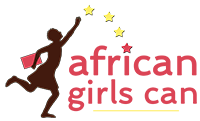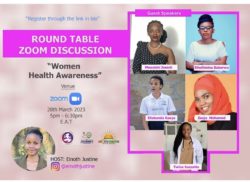
On March 28, 2023 African Girls Can listened in on a roundtable on Women’s Health. A panel of experts from Africa spoke from personal, on the ground experience about women’s health issues and challenges – and promoting awareness of both. And, they discussed how to work together to overcome these challenges.
The participants included a physician practicing in a hospital and in her community in Namibia, Dr. Twina Mbelwa; a laboratory scientist and researcher from Dar es Salaam, Tanzania, Mwamini Joseck; and two founders of grassroots NGOs in Tanzania that promote girls’ education and rights, including access to sexual reproductive health information, Eliakunda Kaaya (Her Journey to School) and Eliwilimina Buberwa (Msichana Imara Foundation). Einoth Justine Ngotoroi, a Program Manager with Girls Livelihood and Mentorship Initiative, organized and moderated the panel.
The program was promoted with the question: Why should we bother to raise awareness about women’s health?
The reason, according to Einoth Justine: “It is not just women’s health, but families’ health. And if it is a family’s health, it is a community’s health, which means a country’s health. This is because of the role of women in the family and community, which brings a ripple effect to everyone around her. A woman’s health determines the health of her entire family, community, country, and the world at large.”
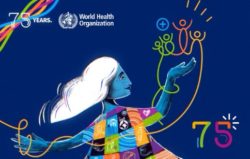
First, Dr. Mbelwa reminded us that we need to broaden our thinking about health by understanding its correct definition.
The World Health Organization, which marks its 75th anniversary April 7, 2023 defines health as a state of complete physical, mental, and social wellbeing, and not just the absence of disease. So, health includes psychological and emotional wellbeing, as well as the ability to have interpersonal connections and adapt to social situations.
Each woman is an individual and needs to learn to cope with changes that affect her. Women are not given enough information to know their own mind and body. “Knowing what makes you tick in all three areas will maximize what you need to do to adapt,” added Dr. Mbelwa.
The conversation turned to the perspectives of the girls themselves. Ellie Kaaya presented the results of some research done by Her Journey to School. How do girls define health?
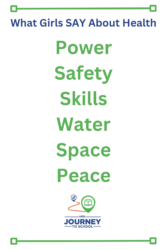
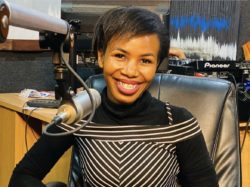
Eliwilimina Buberwa related two key challenges observed by the Msichana Imara Foundation, a youth-led initiative based in Arusha, Tanzania:
- Cultural taboos about talking about menstruation and reproduction. This, combined with the pervasiveness of social media results in girls having NO idea or the WRONG ideas, instead of knowledge based in fact.
- Inadequate country-wide school curriculums on reproduction. This results in early pregnancy, leading to school dropouts, and disease. It is important that the people who share this information have proper guidelines, be well trained, and are prepared to answer technical questions – all within an age appropriate curriculum and environment.
When is the right time and age to discuss health? Mwamini Joseck emphasized “the time is now! You may be surprised what a young child of this generation knows.”
Joseck continued to share her opinion: “There has been much effort in educating the public about HIV and COVID. The same efforts should be used to create awareness and advocate for women’s health. Even women who are educated can still acquire information from the wrong places.”
One of the audience members posted in the chat that we must not forget the key role of parents/guardians in the health of their kids. “I believe this generation has a lot going on, so it is important to talk to our kids at home about their health. Parents play a major role and a healthy foundation begins at home. Anytime your kids ask something you feel is above their age, don’t try to throw it in the bush. These kids understand and its only fair to let them know.”
Awareness for mental health is growing, but has a long way to go to be generally accepted in society. The relationship between physical and mental health is completely connected and interrelated. Your mind literally controls your body.
Women are the multi-taskers in their families and society with lots of responsibility. Their productivity decreases if their mental wellbeing is diminished.
Next Steps
The most impactful thing we can all do is communicate! This comes in many forms: mentoring girls one on one, distributing correct information (leveraging the power of social media for good – when is the last time you posted something “information worthy?”), helping girls to access resources, and providing a safe space for girls and women to discuss health issues. Advocating for government policies (such as school curriculums) is also critical to effect long-term change.
Having knowledge is not the same as practicing the knowledge.
Final words in the chat:
“I agree with the digital ways, but we just need to reach out. Sometimes, it’s just a hand and a smile that girls – and boys – need.”
“Let’s take care of ourselves and be strong so we can help who needs us out there.”

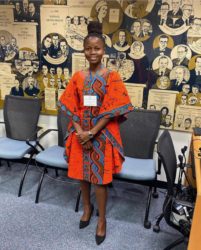
You may remember Einoth Justine for the wonderful blogs she wrote for African Girls Can in the spring of 2022. Einoth is now back with Girls Livelihood and Mentorship Initiative as Program Manager, working to expand its innovative life skills program (Binti Shupavu) to another region in Tanzania. Hundreds more girls will learn resiliency and receive accurate information about how to stay healthy.
Einoth is currently in the United States participating in the US Department of State’s International Visitor Leadership Program (IVLP). The topic is clearly one of interest to her: Mitigating Challenges in Women’s Health. Along with 10 other young professionals from countries in Africa and the Middle East, Einoth is traveling to Washington DC, San Diego, Iowa City, Albany, and Pittsburg, to engage in learning and discussion about women’s health equity. A big welcome to Einoth!
